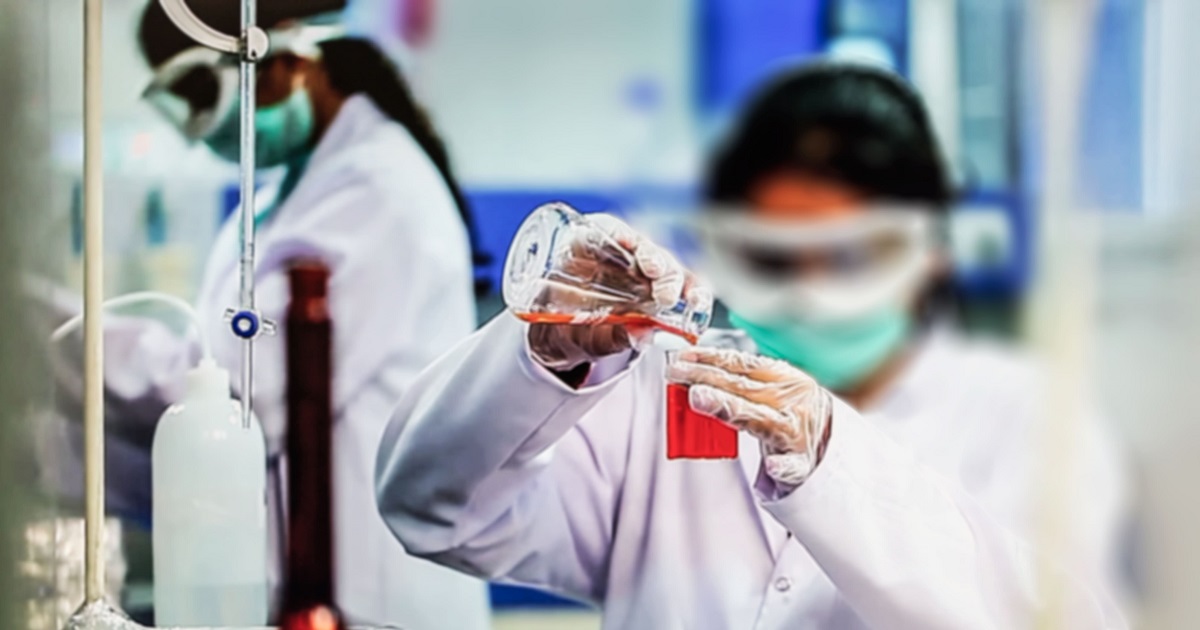
Chemical Management
Article | July 22, 2021
Used to separate and analyze compounds into their various components— chromatography plays a crucial part not just in the food industry but in the realms of drug testing, forensics, and even quality control in our favourite alcoholic drinks as well.
Advanced Chromatography is an analytical technique introduced to the world by chromatography instrument companies to separate and analyze individual chemicals from complex compounds. Recent developments in the biotechnology and pharma industries have created a significant surge in the chromatography market.
Read on to find out five fascinating facts about the day-to-day applications of chromatography in various industries and why businesses are looking to invest more in OEM chromatography manufacturing.
Why are Industry-Decision Makers Adapting to Chromatography?
Liquid Chromatography; A Popular Choice in Drug Testing
Today, a lot of drug tests use liquid chromatography-mass spectrometry because it is easy to use, widely available, and gives quick results. LC and LC-MS can be done in almost any testing facility, which is different from other methods. It can be run by people with little training, so a testing facility can hire mostly technicians instead of highly trained scientists, who are harder to find. LC-MS is also very accurate, which means that there are fewer false positives.
With liquid chromatography, you can get results in about 10 to 30 minutes, which is very fast. This technology is used by many drug testing labs across the country. It is widely used and trusted for testing drug samples and many other things.
Businesses associated with the sports industry are leveraging chromatography to effectively and accurately test athletes for doping or performance-enhancing drugs.
Use of HPCL in Pharmaceutical Industries
Chromatography is used in the medical and pharmaceutical industries to create vaccines. In addition, chromatography can determine which antibodies best neutralize viruses and diseases.
Mapp Biopharmaceutical, Inc. used the chromatography technique to develop the experimental immunization Zmapp to counteract the deadly Ebola virus. And it is still being used today to fight the coronavirus.
The pharmaceutical industry has gained enormous success by exclusively using HPLC to obtain precise results during drug trials. The results can be used to analyze finished drug products and their ingredients quantitatively and qualitatively during manufacturing.
The Detector in Forensic Science
Chromatography methods are a well-established, powerful suite of methodologies in forensic science, from drug busts, murders, and robberies, to the identification of a plethora of chemical compounds that may be present in samples from terrorist incidents.
Forensics use gas chromatography to help solve crimes. It helps analyze blood and clothing samples, allowing forensic scientists to investigate who and what was present at a crime scene.
In particular instances, chromatography can even help forensic scientists pinpoint the exact whereabouts of the alleged perpetrator and victim before the crime happened. It’s an error-free process. Therefore, it is incredibly helpful in court.
Additionally, chromatography is extremely handy in arson investigations. Most fires have a virtual cocktail of different substances. Every compound and substance differs in size and weight. Chromatography helps break down these varying compounds and substances to help determine what exactly started the fire.
Liquid Chromatography in Food Industry
Liquid chromatography plays a vital role in the food industry nowadays. It absolves and permits the selective removal of a wide variety of flavor and non-flavor-active food ingredients.
The USDA, along with other countries, has prioritized rigorous testing of processed meat's contents. For example, in 2013, it was found that horsemeat was being sold as beef without anyone noticing. As a result, the food industry decided to change its analytical techniques.
Chromatography quickly became the best way to find out what was in processed meats. High-Performance Liquid Chromatography and mass spectrometry were used to ensure that meat labeled beef was actually beef. In addition, it could tell if horse meat was mixed in with the beef, which helped keep people safe.
Bio-Rad Fast Acid Analysis Column in Beverage Testing
Not just food, many beverage manufacturers also use chromatography to ensure that each bottle of their product is the same. But, again, consistent taste is the main priority. And knowing the exact content of each bottle is the most proactive way to measure things.
The Bio-Rad fast acid analysis column has been successfully used by many companies to quantitatively determine vitamin C in juices, fresh drinks, and powdered drinks.
Chromatography Market is Opening New Dimensions in Various Businesses
Undoubtedly, technological advancement has created a vigorous need for chromatography devices. According to Verified Market Research, growing at a CAGR of 3.4% from 2020 to 2027, the chromatography market is projected to reach USD 4.73 billion by 2027.
The chromatography instrumentation market is currently witnessing huge advancements in the design of columns. This is raising the demand for development of better analytical reagents and resins. Increasing collaborations among the existing players, specifically in the Asian market is another propelling factor for this market. Additionally, emergence of green chromatography, increasing usage of chromatography instruments for monoclonal antibody purification, and usage of nanomaterial in chromatography are also fuelling the growth of this market. Plus, increased government funding in research and development activities is further driving the market growth.
With various pharmaceutical and biotechnology companies, chemical, food and beverage, and other industries contributing to its market growth, one thing is for sure— the increase in the chromatography system market is here to stay.
Read More

Chemical Management
Article | July 8, 2022
Consumer needs and preferences in the energy industry are evolving. Environmental, social and governance (ESG) concerns are becoming more acute—inspiring action and shifting value towards low-carbon solutions. These trends accelerated in 2020 and for the first time, market capitalization of leading low-carbon solutions companies began to overtake those of oil and gas (O&G) majors. This is despite the majors laying out energy transition strategies, setting low carbon energy targets and generating higher revenues by an order of magnitude.1
In response to this radically changing landscape, energy companies are charting divergent courses for their futures. Some continue to bet on their ability to generate returns from the O&G value chain. They are focusing on growing margins and lowering carbon intensity. Others are supplementing their capabilities with low-carbon energy solutions or exiting hydrocarbons altogether. This blog focuses on the path forward for the energy majors in Europe who are betting big on diversification.
Read More

Chemical Technology
Article | July 20, 2022
An enzyme-mimicking catalyst opens a new route to important organic molecules such as glycolic acid and amino acids from pyruvate, report researchers in Japan. Moreover, the new catalyst is cheaper, more stable, safer and more environmentally friendly than conventional metal catalysts used in industry, they note, adding that it also displays the high enantioselectivity required by the pharmaceutical industry.
“On top of these advantages, our newly developed organic catalyst system also promotes reactions using pyruvate that aren’t easily achievable using metal catalysts,” says Santanu Mondal, a PhD candidate in the chemistry and chemical bioengineering unit at Okinawa Institute of Science and Technology (OIST) Graduate University, Okinawa, Japan, and lead author of a study recently published in Organic Letters.
“Organic catalysts, in particular, are set to revolutionize the industry and make chemistry more sustainable,” he stresses.
The researchers use an acid and an amine mixture to force the pyruvate to act as an electron donor rather than its usual role as an electron receiver (Figure 1).
Effectively mimicking how enzymes work, the amine binds to the pyruvate to make an intermediate molecule. The organic acid then covers up part of the intermediate molecule while leaving another part that can donate electrons free to react to form a new product.
Currently, the organic catalyst system only works when reacting pyruvate with a specific class of organic molecule called cyclic imines.
So, the researchers now are looking to develop a more-universal catalyst, i.e., one that can speed up reactions between pyruvate and a broad range of organic molecules.
The challenge here is to try to make the electron-donating intermediate stage of pyruvate react with other functional groups such as aldehydes and ketones. However, different catalysts create different intermediates, all with different properties. For example, the enamine intermediate created by the researchers’ new reaction only reacts with cyclic imines. Their hypothesis, currently being investigated, is that creation of other intermediates such as an enolate, if possible, would achieve a broader pyruvate reactivity.
In terms of cost, the researchers note that a palladium catalyst used in similar reactions is 25 times more expensive than their organic acid — which also is made from eco-friendly quinine.
In addition, they believe scale-up of the process for industrial use definitely is possible. However, the researchers caution that the current amine-to-acid-catalyst loading ratio of 1:2 probably would need to be optimized for better results at a larger scale.
Read More

Chemical Technology
Article | August 2, 2022
From novel process technologies to sustainable plastics— the chemical industry is scaling up its digital initiatives. This has opened new doors for organizations to explore opportunities to increase efficiency and streamline the process.
Admittedly, the chemical industry has been a little slower in implementing digital transformation. But COVID-19 has vastly increased the momentum of digitization among chemical plants.
According to a KPMG survey, 96% of industry CEOs saw digital transformation accelerate in their organizations, with 48 percent saying it advanced by a few years. In addition, according to a recent Manufacturing Leadership Council (MLC) survey, 82% of respondents agreed that the pandemic had "created a new sense of urgency" in driving investment in new technologies and digitalization.
Digital transformation solutions offer tremendous potential in the chemical sector. It can play a significant role in driving more value. So let's dig deeper and look at key technologies in bringing digital transformation to the chemical industry.
Circular Economy
Chemical manufacturers cannot exist within their own four walls any longer. They recognize the importance of working with their customers and other businesses and organizations to conserve resources and protect the environment. Chemical companies may source raw materials from recyclers as part of a circular economy, which necessitates fool proof solutions to confirm their quality and availability. Circular economy consortiums may advocate for reducing environmental threats such as ocean plastics or exposure to hazardous chemicals, opening up new avenues for innovation.
Customers are constantly looking for new ways to reduce waste and protect their ecosystems. For example, farmers may benefit from solutions that can instantly analyze soil quality, weather, and crops to determine the best products and schedule for applying fertilizers, crop protectants, or new seeds. Using this data, they use only what they need, generate less waste, and maximize output.
Error-Proof Operations
Chemical firms are also embracing technology to achieve operational excellence. They've discovered the benefits of using machine learning andIoT technologies to automate standard back-end processes. Technologies such as these reduce the need for human intervention — and thus the possibility of human error. Blockchain technology can also significantly reduce counterfeit chemicals' use, which is especially important for chemical manufacturers who supply products to the pharmaceutical or agricultural industries. In addition, blockchain technology can enable track-and-trace processes that require less work and waste while protecting the enterprise's reputation.
Staying Sharp in the Dynamic Market
Staying agile in an uncertain M&A environment is a top priority for some businesses. For example, chemical firms must be able to quickly divest assets, adjust portfolios, and adapt operations in response to market changes. Technology can provide executives with the visibility into operations, shipments, and market conditions required to make critical decisions and remain agile.
Data Analytics
The chemical industry is leveraging cloud-based storage systems to store and share confidential data anytime and anywhere. Additionally, data analytics solutions can analyze all the data effectively to provide valuable insights to the industry. This will help you make meaningful decisions in real-time.
Read More